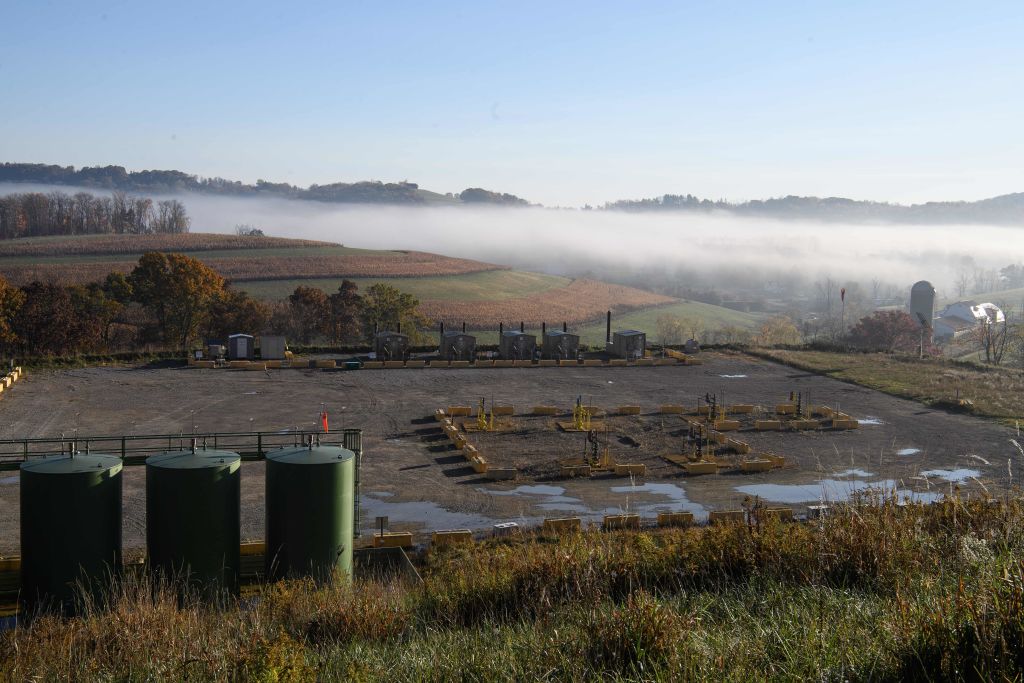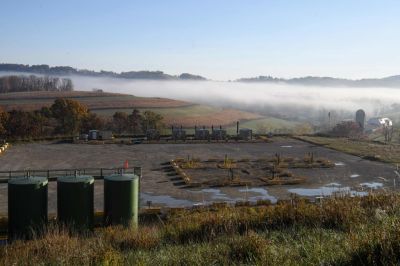Kamala Harris is in a bind on the issue of fracking. Well-heeled, college-educated, urban progressives hate it, partly for reasons of ignorance and prejudice and partly because they have been convinced (and have convinced themselves) that the continued use of oil and gas as instruments of human flourishing will have apocalyptic consequences.
But, Pennsylvania.
Of course, it’s not just Pennsylvania, a swing state where gas is a big part of the economy–nearly 10 percent of the Keystone State’s economic output, as the American Petroleum Institute makes the numbers, including about $40 billion in labor income. The Democrats’ efforts to win the presidency in November also have run into unusual headwinds in states such as New Mexico, another oil-and-gas state in which fracking highlights the class differences between voters who work in the mud and voters who teach yoga in Santa Fe. The replacement of President Joe Biden by his vice president probably will fortify the Democrats’ slipping position in New Mexico, but fracking—and the intimately connected issue of energy prices—matters to other Americans, too. It matters, for example, to the ones who use products such as light, heat, and food; Americans who live in houses; Americans who consume goods produced more than 1,000 yards from their homes and cannot have them dragged to their front steps by means of a donkey cart, etc.
Fracking ought to be easier to talk about—even for Harris, who comes from the yoga-class wing of the Democratic Party and not the rapidly vanishing work-in-the-mud wing of the party. But getting it right on fracking requires a few things that Harris has not shown an abundance of: intelligence, honesty, and a willingness to be frank about trade-offs.
There isn’t a politically attractive way forward on fracking if you are from the progressive faction that opposes the use of fossil fuels per se, that seeks to eliminate their use as quickly as is possible (I did not write feasible), and that invariably resists efforts to make more oil and gas available for use. If you are against inexpensive and abundant oil and gas on ideological grounds, then, of course, you oppose fracking.
If you take a more intelligent view—that prosperity requires access to economically viable energy sources and that all of these, including so-called green sources such as wind and solar, impose serious environmental costs—then there is a way forward.
The most important environmental issue specific to fracking isn’t seismic and it isn’t the contamination of drinking water through gas migration (fracked wells are, on average, a little less likely to pollute groundwater than are conventional wells) or anything like that—it is the dirty and unsexy issue of managing and disposing of wastewater. Fracked wells go deep—think 5,000 feet to 20,000 feet beneath the surface—and there are all sorts of totally natural, totally nasty stuff down there that comes up with the wastewater, from mildly radioactive matter to arsenic to bromides, the last of which can be very dangerous when it reacts with the chlorine used in water treatment plants. The thing about wastewater management is that it is a manageable problem.
And do you know who has been pretty good about managing it? Pennsylvania.
Pennsylvania’s energy industry and its Department of Environmental Protection have a much more fruitive, constructive, and collaborative relationship than you might expect, and it is a far cry from the relationship between the national industry and the EPA. The industry has developed innovative approaches to treating and recycling fracking wastewater, and leading firms in Pennsylvania have made a point of going beyond what is minimally required of them by state regulators. The DEP for its part has treated oil and gas regulation as regulation—not as a second-best approach to an industry activists would rather see suffocated.
I do not expect that there are many Ford F-250s with “Harris 2024” bumper stickers on them chugging around the Marcellus Shale, but Pennsylvania’s oil and gas industry is full of engineers and scientists and nerds who would be more than happy to explain to Harris how they can do their work while minimizing the environmental impact of drilling and maintaining an acceptable environmental risk profile. Energy extraction is the example par excellence of Thomas Sowell’s maxim: “There are no solutions. There are only trade-offs.”
But it takes a reasonably grown-up kind of politician, and a reasonably grown-up kind of politics, to talk about trade-offs in that way. And it is not clear that Democrats—or Americans at large—are ready for that kind of politician, or that Kamala Harris is capable of practicing that kind of politics.
But if she is looking for an opportunity to prove herself, fracking is it.







Please note that we at The Dispatch hold ourselves, our work, and our commenters to a higher standard than other places on the internet. We welcome comments that foster genuine debate or discussion—including comments critical of us or our work—but responses that include ad hominem attacks on fellow Dispatch members or are intended to stoke fear and anger may be moderated.
With your membership, you only have the ability to comment on The Morning Dispatch articles. Consider upgrading to join the conversation everywhere.